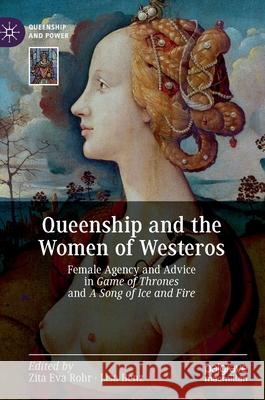Queenship and the Women of Westeros: Female Agency and Advice in Game of Thrones and a Song of Ice and Fire » książka
topmenu
Queenship and the Women of Westeros: Female Agency and Advice in Game of Thrones and a Song of Ice and Fire
ISBN-13: 9783030250409 / Angielski / Twarda / 2019 / 263 str.
Queenship and the Women of Westeros: Female Agency and Advice in Game of Thrones and a Song of Ice and Fire
ISBN-13: 9783030250409 / Angielski / Twarda / 2019 / 263 str.
cena 321,26
(netto: 305,96 VAT: 5%)
Najniższa cena z 30 dni: 308,41
(netto: 305,96 VAT: 5%)
Najniższa cena z 30 dni: 308,41
Termin realizacji zamówienia:
ok. 22 dni roboczych
Dostawa w 2026 r.
ok. 22 dni roboczych
Dostawa w 2026 r.
Darmowa dostawa!
Kategorie BISAC:
Wydawca:
Palgrave MacMillan
Seria wydawnicza:
Język:
Angielski
ISBN-13:
9783030250409
Rok wydania:
2019
Wydanie:
2020
Numer serii:
000355589
Ilość stron:
263
Waga:
0.55 kg
Wymiary:
21.01 x 14.81 x 2.06
Oprawa:
Twarda
Wolumenów:
01
Dodatkowe informacje:
Wydanie ilustrowane











